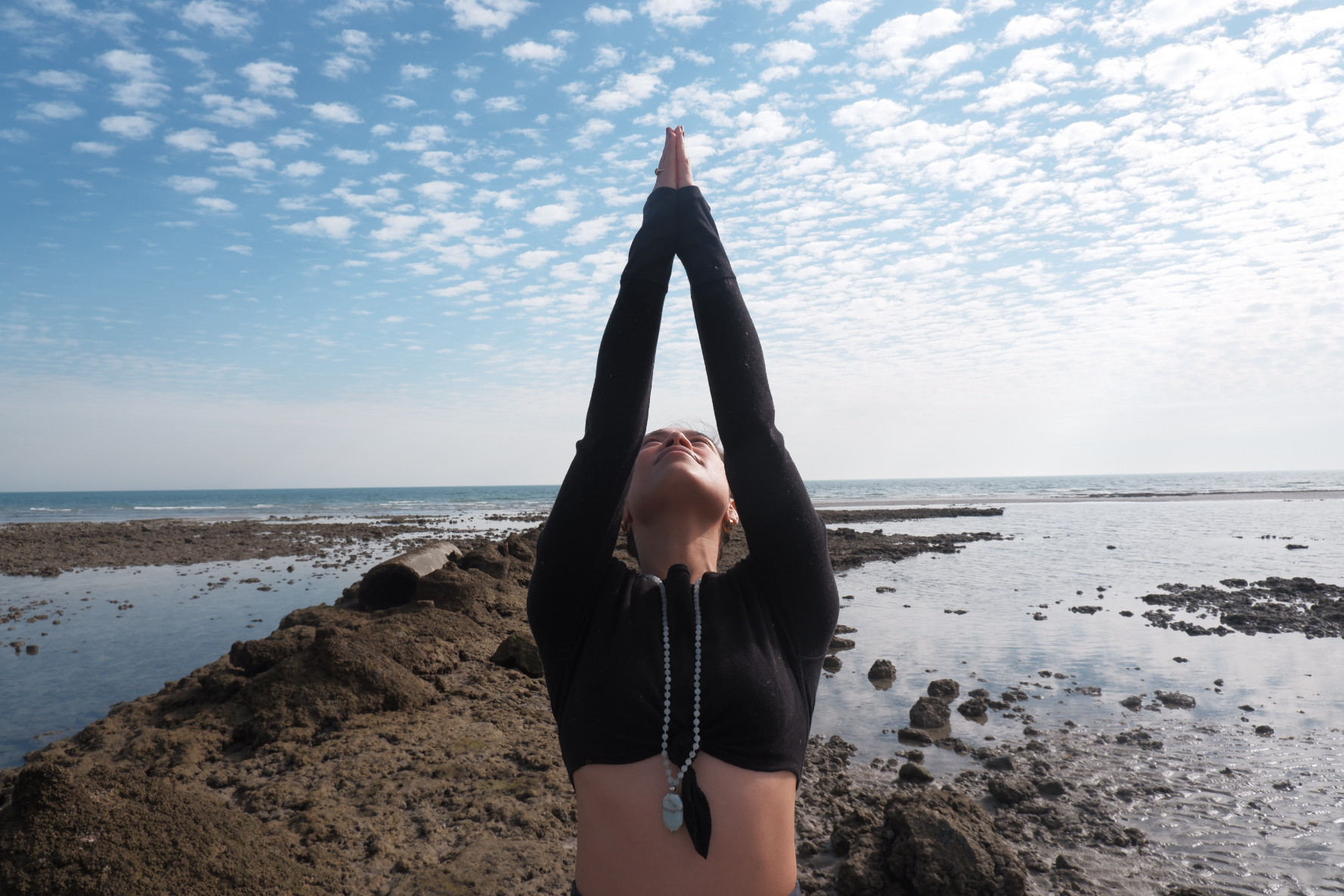I am recovering from complex post-traumatic stress disorder.
It took me years and the acknowledgment of a close, trusted friend, who happens to be a therapist, to accept that I was suffering from symptoms of complex post-traumatic stress disorder (CPTSD).
I’d like to think of myself as a strong, well put together woman. I would often hear people, including the men I dated, strangers, and colleagues tell me, “you seem to have a good head on your shoulders,” and in many ways, I did—and I still do.
I wasn’t abused as a child, I didn’t grow up poor or lacking, and, in many ways, my parents were good people.
I often thought that complex trauma or CPTSD is the result of a horrific, indescribable experience. Like the child who was repeatedly molested by a trusted, close family member, with nowhere to escape and no one to turn to, or the soldier who witnessed his best friend’s body blow up to pieces in the middle of combat, and had to muster the strength to tell his family their loved one was gone, or the woman who is repeatedly beaten, abused, and battered—whose screams are muffled behind the corners of four walls, and the oblivion of those who hear her pain but choose to remain silent, or the immigrant, stuck in a war zone, whose entire family died in an explosion to become yet another statistic in the morning news, or…
But I never experienced any of these horrible events.
In many ways, I have often been grateful for all that life has offered me—health, good genetics, a clear mental space, the opportunity to go to college and continue learning, great job opportunities, a few close friends, and more recently, starting my life in a new country—in a middle of a pandemic—while being surrounded by a community who believed in me enough to offer me a job.
But here’s the thing about complex trauma: it is an experience that is felt and held deeply on a somatic, visceral, and bodily level. It isn’t something we can simply intellectualize our way out of or deny because our surrounding points out to all the fortunes we already have.
What we may not understand about complex trauma is that it takes on so many facets—some are horrific extremes, while others may be more subtle. If we take our minds out of the equation, our bodies may not be developed enough to differentiate between the different types of trauma.
According to many pioneers, who have done some fascinating work to dissect the enormity of complex trauma, including Peter Levine of Somatic Experiencing, Bassel van der Kolk of The Body Keeps the Score, Pete Walker of Complex CPTSD: From Surviving to Thriving, and Judith Herman of Trauma and Recovery, CPTSD is the result of the accumulation of repeated traumatic and stressful events that took place in a person’s past—ones where they were unable to escape from, respond to, or properly process during or long after they had subsided.
The experience of holding onto complex trauma carries with it a deep sense of perpetual shame, guilt, and self-loathing—one where people might feel that their bodies have failed them, or even worse, that they deserved the traumatic event and the pain that has befallen them.
This leaves them feeling unable to seek help, even while their entire visceral body is screaming, because they simply might not believe they deserve to be helped, or there’s anything that is worthy of being restored.
This especially holds true for children who have suffered from abandonment—whose childhood was turbulent, yet not unstable enough to lead them to believe that what they struggle with as adults is the result of what they experienced as children.
For the longest time, I have denied my own experience because I was grateful for the life I had, as I always will be.
But why should being grateful go against integrating or accepting the parts of our childhood that we lost and will probably never have? Must we all end up in drug and alcohol addiction or bad sexual relationships or as master f*ck ups, the way our culture stigmatizes all abandoned children, before we actually seek help?
Looking back, I believe there were two reasons why I never ended up in any of these dark alleys. First, I grew up in a conservative society that was shielded from all types of narcotics and sex, as they went against the values and the religion of the culture, and, second, I learned to develop a perfectionistic and dissociative type of persona that allowed me to bury myself in every intellectual field I was able to step my foot into.
Until, one day, the perfect, well put together persona, with the good head on her shoulders, has become my default, alter ego with which I meet the world.
But perfectionism is yet another coping mechanism that results from the repeated trauma we once experienced and felt as vulnerable, helpless, and little children. Just because our culture doesn’t demonize it as it does with other addictions, that doesn’t mean it is healthy or it can’t intrude on our well-being.
A few months ago, I experienced an emotional flashback—a common symptom among CPTSD survivors. It was my first day at a new job and life was looking great. But all of a sudden, I started to feel my imposter syndrome slowly seeping into every fiber of my bones. My perfectionistic alter ego had clashed with my feeling like a fraud, a total f*ck up, and a helpless nobody, who didn’t deserve to feel good, because life was often harsh on me.
When the pain seeped in, I honestly thought I was losing my mind. My vision started to blur, my head started to spin, my breath became shallow, and I almost forgot how to breathe. It was one of the most cathartic abreactions I have ever experienced; it finally forced me to seek help, as I knew I couldn’t get myself out of my own body.
It took me calling an emergency hotline and a friend who was in a different time zone to re-center myself and to remember how to breathe. At that moment, I realized that my perfectionistic walls, which I spent years and years carefully building, were starting to crumble, giving way for my abandoned inner child to finally grieve.
I recall many nights during my childhood, whenever I felt scared and small and hopeless, I would muffle my cries against my pillow, lest I wake up my parents who never seemed to notice my sudden withdrawal or lack of engagement.
Unfortunately, I can’t pinpoint the exact root of my CPTSD. I haven’t been in therapy beyond six months in a row—a period which isn’t long enough to unfold the misfortunes of the past 31 years of my life. Dissociating from pain also made me forget a myriad of memories.
I have vague memories of experiencing repeated racism, growing up in fear of being deported—the same fears that my parents had while living in a country with limited rights toward immigrants—feeling alienated and a lack of belonging, fearing the wrath of an angry God, and growing up in a home where love was absent.
To the outsider, we were another ordinary Middle Eastern family, with a weird hybrid twist. But we were also a family with many dark secrets that left me with a deeply rooted sense of shame that never ceased to grow the older I got.
Part of my coping mechanism as a child had led me to become codependent on my parents’ approval, even when I was never able to feel the warmth of their love. So I learned to never question their ways.
Growing up partially Middle Eastern, parental approval is a significant part of family dynamics, even when it isn’t healthy for the child who learns how to shrink themselves to fit the tight confines of their culture. And just like in any other culture, this is part of the pressure to fit in.
So on top of my crippling CPTSD that led me to a state of learned helplessness, I was also married to a culture that was relentless in re-enacting my sensations of feeling trapped, with no escape, and no hope of any of it ever changing.
I grew up holding onto my past, allowing the stories that once took place to define me. I created an entire identity out of my narratives, and I often fear that I wouldn’t be able to recognize who I am if I were to let go of my trauma.
Who would I be without my trauma?
What stories would I be able to tell if I let go of the pain?
Will I find the same inspiration to write happy stories as I once found my muse in writing sad ones?
Will I be able to connect with happy people in the same way that I feel deeply connected to people who are depressed, sad, anxious, on the verge of insanity?
The answers to all these questions are yet to unfold…
It is said that in order to feel the love we so long for and deserve, we must first learn how to grieve the love we never had. I don’t think I allowed myself to grieve the past 31 years enough. However, I am finally allowing myself permission to demolish my own thick walls.
Taking an active step to leave the environment that broke me and implanted within me deep roots of shame was a huge first step. It made me realize that despite the enormity of my anxiety, fears, and trauma, I was able to escape what felt like a death sentence.
Sharing these stories of shame, pain, and tiny victories was another milestone, as the spell of shame is broken the more we write about our dark, mud-steeped secrets.
I am slowly starting to accept that maybe, I was never broken; I just never had the chance to realize who I am beyond the trauma stories I was given.
Along the path of healing, there have been many things that gave me hope. One of them is this beautiful quote by a figure, whose own life on resilience, strength, and courage, continues to inspire mine:
“There is no greater agony than bearing an untold story inside you.” ~ Maya Angelou
My hope is that we all find the courage to tell our chosen stories, beyond the narratives we were once given.


 Share on bsky
Share on bsky





Read 14 comments and reply